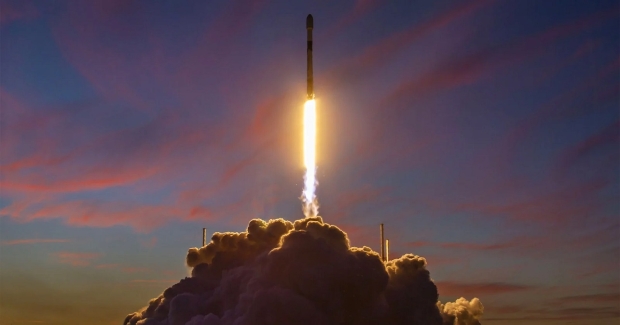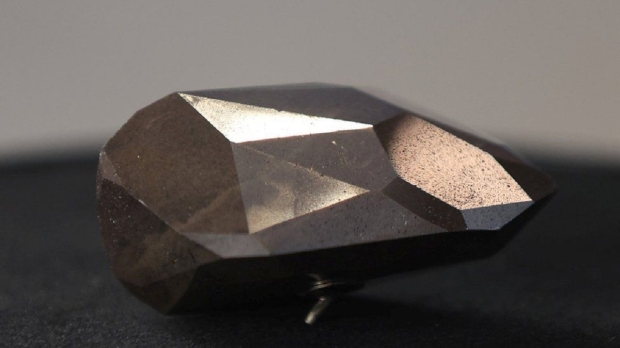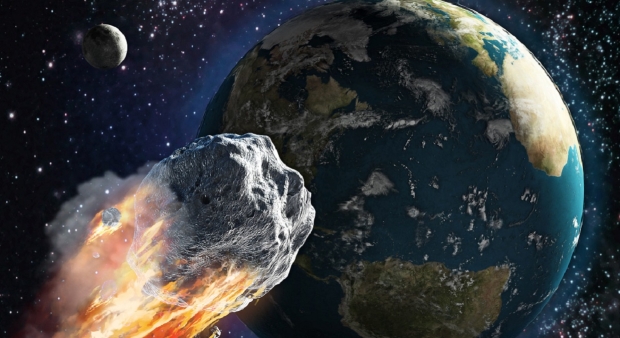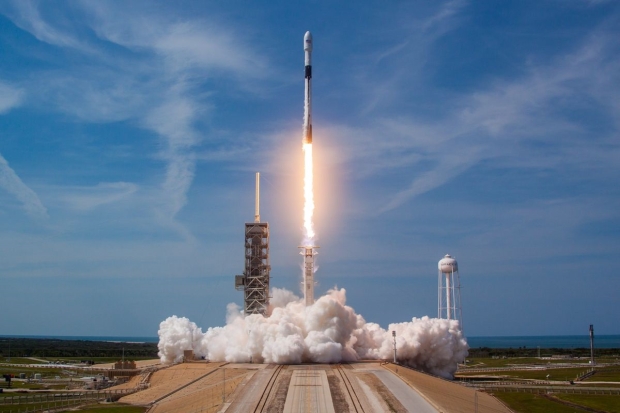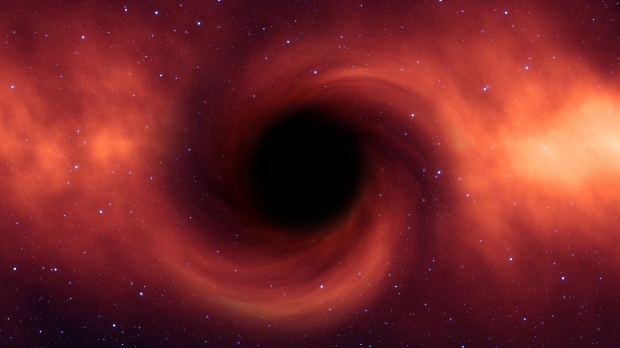Science, Space, Health & Robotics News - Page 190
'SpaceX rocket' caught on film turning into a fireball in night sky
Multiple videos have been captured of is suspected to be a SpaceX Falcon 9 rocket re-entering Earth and turning into an epic fireball as it plummets closer to the surface.
Residents in Cabo San Lucas, Mexico that looked up at the night sky witnessed a light show that rarely many get the pleasure to see. Reports indicate that many people were initially confused about what was causing the fireball to erupt in the sky, but now many people suspect that the fireball was an old second-stage SpaceX Falcon 9 rocket that was launched in March 2017.
At the time of writing this article, SpaceX hasn't confirmed whether or not the debris was a Falcon 9 rocket stage, but regardless of whether it was, the onlookers that saw the event were able to witness something that some people go their entire lives without seeing. In other SpaceX news, another Falcon 9 rocket stage is expected to crash into the Moon. If you want to read more on that story, check out this link here.
Continue reading: 'SpaceX rocket' caught on film turning into a fireball in night sky (full post)
This black rock is expected to be sold for over $6 million, here's why
A billion-year-old black rock will be going up for auction and is expected to be purchased for more than $6 million.
The extremely expensive rock is a 555.5-carat black diamond that belonged to its owner for more than twenty years. According to the BBC, the black diamond is called "The Enigma" and is expected to be purchased for more than $6 million at a Sotheby's auction in London by the time the online bidding closes at the end of this week. Notably, black diamonds are some of the toughest forms of diamond and are usually anywhere between 2.6 to 3.2 billion years old.
The Enigma is a carbonado, which is an extremely rare gem that has only been discovered in Brazil and the Central African Republic. As for the origins of black diamonds, geologists haven't yet garnered a unanimous theory about where they come from. So far, geologists know that black diamonds contain osbornite, a mineral that is only found in meteorites, which leads some geologists to believe that they could form at impacts sites where a large asteroid has struck Earth.
Continue reading: This black rock is expected to be sold for over $6 million, here's why (full post)
Jeff Bezos' $450 million yacht causes WWII bridge to be dismantled
Jeff Bezos' $450 million superyacht is going to cause a historic World War II steel bridge to be dismantled so it can get out to sea.
According to a report from The Guardian, the historic steel frame bridge in the Dutch port city of Rotterdam is to be partially dismantled in order to let a 417 foot-long superyacht called "Y721", constructed for Jeff Bezos, to pass out into the sea. The superyacht costs $485 million and is too large to get past the Koningshaven Bridge that was built in 1927, and rebuilt after the Nazis bombed it during World War II. The bridge operated until 1994, where it was then declared a national monument, with the city stating that it would never be dismantled again.
However, that doesn't seem to be the case, with the mayor of the city now pointing towards the economic benefits created by the construction of the superyacht. Additionally, the local council reassured individuals in the Netherlands angered by the decision to partly dismantle the bridge that it would be rebuilt exactly how it was before Bezos' superyacht began construction. For more information on this story, check out this link here.
Continue reading: Jeff Bezos' $450 million yacht causes WWII bridge to be dismantled (full post)
This comet narrowly missed Earth but still caused devastating damage
A team of researchers has identified evidence that suggests a comet only narrowly missed Earth, but still managed to make a devastating impact on the surface of the planet.
A new study published in Scientific Reports hones in on a comet that passed Earth sometime during 252 and 383 BC. Researchers believe that the comet passed close enough to Earth that debris entered Earth's atmosphere and was observed by several different civilizations at the time, including Chinese astronomers, the Miami tribe, and the Shawnee tribe. The debris from the comet exploded over the Ohio River Valley region. The event was described differently by each civilization, but all fit the description of comet debris.
The team of researchers found evidence for the event at 11 sites that belong to the indigenous Ohio Hopewell culture as 9,200 square miles would have been set on fire and leveled from the explosion. In 1908 comet debris exploded over a Russian forest and wiped out 830 square miles of forest, this was called the Tunguska event. The comet debris that exploded over the Ohio River Valley impacted ten times the area and would have caused widespread suffering for people living in the affected area.
Continue reading: This comet narrowly missed Earth but still caused devastating damage (full post)
SpaceX Starlink satellites are photobombing astronomers, says study
A new study has found that SpaceX's Starlink satellites are causing an increasing number of problems for astronomers.
The new study was published in the Astrophysical Journal Letters and claims that SpaceX's Starlink satellites are causing streaks of reflected sunlight to appear in a growing number of astronomers' photographs. Currently, SpaceX has around 1,900 of its Starlink satellites in orbit, and the US Federal Communications Commission has approved the use of 12,000 satellites.
The researchers behind the study found that in Zwicky Transient Facility (ZTF) images that were taken during the night, there was a 35-fold increase in the number of sunlight streaks caused by Starlink satellites. Comparatively, in late 2019 less than 0.5% of ZTF images contained Starlink streaks, and as of August 2021, 18% of the images were found to be contaminated with streaks.
Continue reading: SpaceX Starlink satellites are photobombing astronomers, says study (full post)
SpaceX posts shocking video of Falcon 9 rocket separating at 3,700 mph
SpaceX recently launched the COSMO-SkyMed Earth observation satellite, and incredible footage of the rocket separating during the flight has been captured and published for the public to enjoy.
The above video has been posted onto the SpaceX YouTube channel and showcases the company's workhorse launch vehicle, the Falcon 9. The footage shows the Falcon 9 using its first-stage booster to push the rocket's payload higher into Earth's atmosphere at the ridiculous speed of more than 3,700 miles per hour. After the first stage has completed its burn, it separates from the rocket and makes its way back down to Earth.
During its descent, the rocket orientates itself to safely land so it can be reused, saving millions in manufacturing. After the first stage separates, the second stage ignites its Merlin boosters to continue the rest of the journey. Notably, the video showcases the payload firing, which is the "shell" of the rocket separating, allowing the payload to be dropped off at the requested altitude.
Continue reading: SpaceX posts shocking video of Falcon 9 rocket separating at 3,700 mph (full post)
Asteroid detection for the entire night sky is now operational
The Asteroid Terrestrial-impact Last Alert System (ATLAS) system can now survey the entire night sky.
The ATLAS system is funded by NASA and run by the University of Hawai'i and initially comprised two telescopes that became fully operational in 2017. The telescopes were based in two different locations in Hawai'i, Haleakala, and Maunaloa, and were able to scan the night sky for asteroids every 24 hours. However, they are limited to only observing the night sky visible from the northern hemisphere.
Now, NASA funding has resulted in the completion of two more telescopes, both located in the southern hemisphere. The first was built in South Africa by the South African Astronomical Observatory. The second was built in Chile, supported by a collaboration between the Millennium Institute for Astrophysics and the private company Obstech.
Continue reading: Asteroid detection for the entire night sky is now operational (full post)
99% of carbon dioxide scrubbed from air with this 'game changing' tech
A new paper published in the journal Nature Energy describes the novel technology.
Engineers from the University of Delaware (UD) captured 99% of carbon dioxide in the air when using their novel hydrogen-powered electrochemical system. The team responsible has been attempting to improve fuel cell technology for over fifteen years, searching for a workaround to the reduced efficiency hydroxide exchange membrane (HEM) fuel cells experience when absorbing carbon dioxide.
They realized that the sensitivity of the fuel cell to carbon dioxide, while detrimental to its efficiency in converting the chemical energy in fuel to electricity, meant it could be used as an effective tool for capturing carbon dioxide from the atmosphere.
Continue reading: 99% of carbon dioxide scrubbed from air with this 'game changing' tech (full post)
Humans are slowly losing their sense of smell, new research indicates
A new study published in the journal PLoS Genetics describes the worrying finding.
Researchers have analyzed the genomes of a thousand Han Chinese people, determining the link between their genetic variations and their perception of ten different scents. They compared the results with the same experiment repeated with six scents with a more ethnically diverse group of 364 people.
Two new receptors for smell were identified, one for detecting the synthetic musk used in fragrances and another for a compound in the odor from the human armpit. They found that people with the ancestral versions of the genes, the same as those found in non-human primates, for their scent receptors, rated the corresponding scents as more intense compared to participants with the more recently emerging variants of the genes.
Continue reading: Humans are slowly losing their sense of smell, new research indicates (full post)
First-ever wandering black hole found roaming through space
A new preprint paper has been published detailing the finding.
Astronomers witnessed a potential microlensing event in 2011 that has now been confirmed to be due to the presence of a free-floating black hole. Such black holes have been theorized to exist but hadn't been found, as they are much harder to observe amongst the black nothingness of space.
Researchers looked for lensing effects, the bending of light from stars close to a black hole, to find the black hole. When a black hole is further away from neighboring stars, its gravitational pull is weaker, and the lensing effect is lessened, making them significantly more difficult to find.
Continue reading: First-ever wandering black hole found roaming through space (full post)


